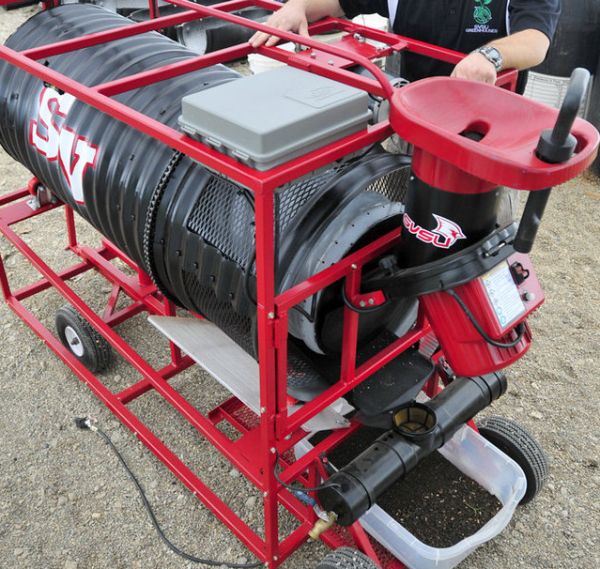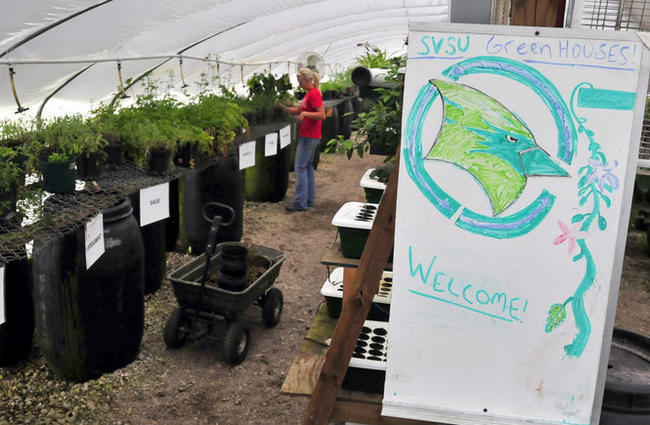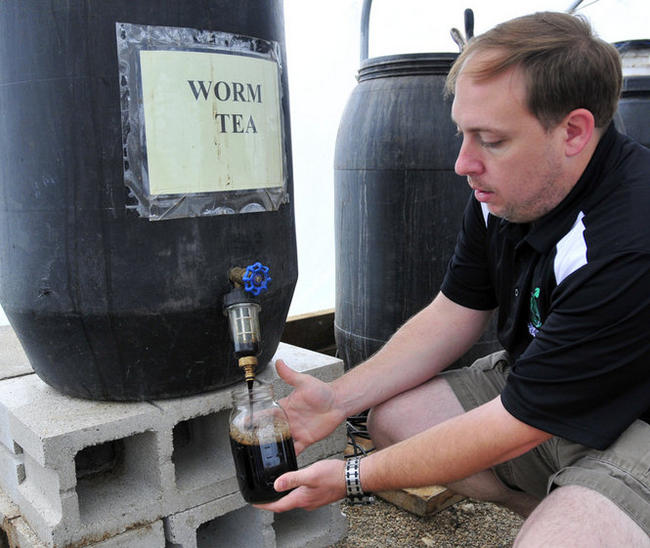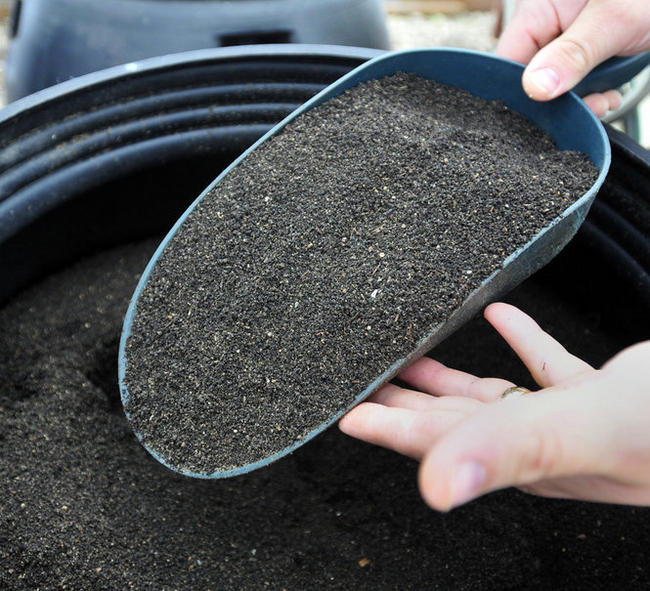
Inspired by Professor Edward Meiselâs innovative idea, three students, namely Douglas Butterfield, Jason Haubenstricker and Brennan MacMillan of SVSU (Saginaw Valley State University) in Michigan, USA have improvised on the design and rebuilt an automated compost machine. The students call their variation of the compost machine as WFARM short form for Worm Factory; Automation and Recycling Matter. The machine weighs 400 pounds and runs automatically and thereby is not as messy as conventional worm beds which require endless hours of sorting, aerating and shifting manually.

The prototype costs only $2000 to build and can be scaled up for industrial purposes or scaled down for domestic uses. A lawn tractor may be used to move the machine. It runs on a concept that is very simple – the compost material goes through an electric grinder for one minute a day and then Red Wriggler worms decompose it into vermicompost and worm tea. The machine works automatically with no manual intervention making it stand apart from other compost machines.

As of now, the machine can handle 25 pounds of food/compost material, however, it’s capacity is being improved to handle 100 pounds of food material by the end of this fall. The WFARM uses very little energy ($0.05 per week of electricity) – hence it is cost-effective as the operation costs are minimal.
The only manual work you have to do is to feed the tray at the top with organic trash and pull out the compost when the compost bin is full. Compost material can range from paper, food scraps, coffee grounds, grass clippings to any other kind of organic waste from the office or house.

The WFARM is the answer to all those compost makers who had been long waiting for a hassle free do-it-all machine. Few amongst us have the time or inclination to do the dirty work of composting on our own. The WFARM on the other hand is extremely user-friendly and it can aerate, irrigate and separate the compost on its own.
Prof. Edward Meisel, the chemistry professor and SVSU Greenhouse director who had originally thought of the idea and created an early version of the WFARM, believes that it could be improved upon. Now he is testing the capabilities of WFARM and looking forward to selling it with the help from the Center for Business and Economic Development at SVSU.
On a large scale, the WFARM could potentially be of great use to developing countries with strong agricultural economies like India and China which have a constant demand for compost in agriculture. It could also reduce the carbon footprint of many large corporations who generate copious amounts of waste paper, or large restaurants that generate a lot of food waste. On a smaller scale it can be used in our homes for better waste management. The WFARM’s appealing qualities such as minimal operation cost, user-friendly and most of all environmentally friendly make it a a win-win situation for all.
Via: Mlive


